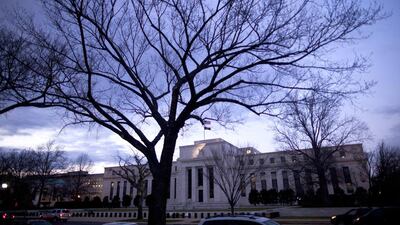In mid-2008, the Federal Reserve Bank launched its first quantitative easing programme. This concept is also known as unconventional monetary policy. In practice, the Fed (or any other central bank) purchases assets and injects broad money into the economy. In doing so, quantitative easing tries to directly affect long-term interest rates. That is in contrast to conventional monetary policy, which focuses on controlling short-term interest rates.
In December, the Fed announced that the Federal Open Market Committee (FOMC) had decided to start from January this year to taper its monthly purchase of securities by US$10 billion.
The Fed had been purchasing $85bn per month in longer-term treasury and mortgage-backed securities. It said it would reduce purchases of treasuries and mortgage-backed securities by $5bn each.
Ben Bernanke, the Fed chief at the time, had made it clear that the decision to reduce quantitative easing related directly to the progress made in terms of inflation and continued job gains in the US economy.
The main reason behind this monetary policy action is that the FOMC believes that the progress towards its economic objectives will be sustained. If the incoming data broadly supports the FOMC’s outlook for economic growth, employment and inflation, a further cut on monthly securities purchase will be adopted in the future.
Based on the FOMC preliminary data projection of the US economy’s performance, the growth rate of real GDP in 2013 was about 2.3 per cent. The FOMC expects that real GDP in 2014 will register a growth rate between 2.8 and 3.2 per cent. A similar real growth rate is expected for 2015 and 2016.
The FOMC’S projection for unemployment shows that this rate will decline from 7 per cent in 2013 to 6.5 per cent in 2014 and to 5.6 per cent in 2016.
Further, the FOMC continues to expect inflation to run below its 2 per cent target for a time, but moving gradually back towards 2 per cent as the economy expands. The FOMC’s data shows that the inflation rate for 2013 was 1.0 per cent, projected to rise to 1.5 per cent this year and to 1.9 per cent in 2016.
Likewise, tapering quantitative easing comes in a time frame in which the world is optimistic about the economic performance for the coming two years. The World Economic Outlook of January 2014 which is issued by the IMF shows the following facts: The world economy is expected to register an economic growth rate equal to 3.7 per cent and 3.9 per cent in 2014 and 2015, respectively, compared to 3.0 per cent in 2013. Besides, the report predicts that advanced countries’ economic growth rate will reach 2.2 per cent and 2.3 per cent in 2014 and 2015, respectively, compared to 1.3 per cent in 2013.
The power of the tapering effect relies mainly on how short-term interest rates are adjusted and how it will affect long-term interest rates. If aggressive tapering is adopted, long-term interest rates could rise more sharply than currently anticipated, which in turn will affect exchange rates, capital inflows, inflation, investment and consumption levels.
The first predicted direct effect of tapering quantitative easing is to increase US interest rates. This might put some pressure on other economies around the world. For example, if the UK and euro zone did not adopt similar moves, then the interest differential might cause an appreciation in the US dollar compared to sterling and the euro, respectively.
Besides, tapering quantitative easing in the US might create pressure on the emerging economies in Asia and Latin America. This pressure comes from the fact that adjusting the interest rate upward will motivate capital flows to transfer from these countries to the US economy. We expect that this movement will be steady and slow because the tapering mechanism itself will be applied gradually.
In the GCC, we will feel similar effects as stated in the above-mentioned two cases. Recall that the exchange rates of most of the GCC countries are pegged to the US dollar. Thus, we expect that the interest rate will increase in the GCC countries which will encourage saving. However, the cost of borrowing could be higher. At the same time, if the US dollar appreciates then this might reduce slightly the inflation rate in the GCC countries.
There is no doubt that the consequences will be clearer as this monetary policy action develops.
Osama Sweidan is an associate professor of economics at UAE University

